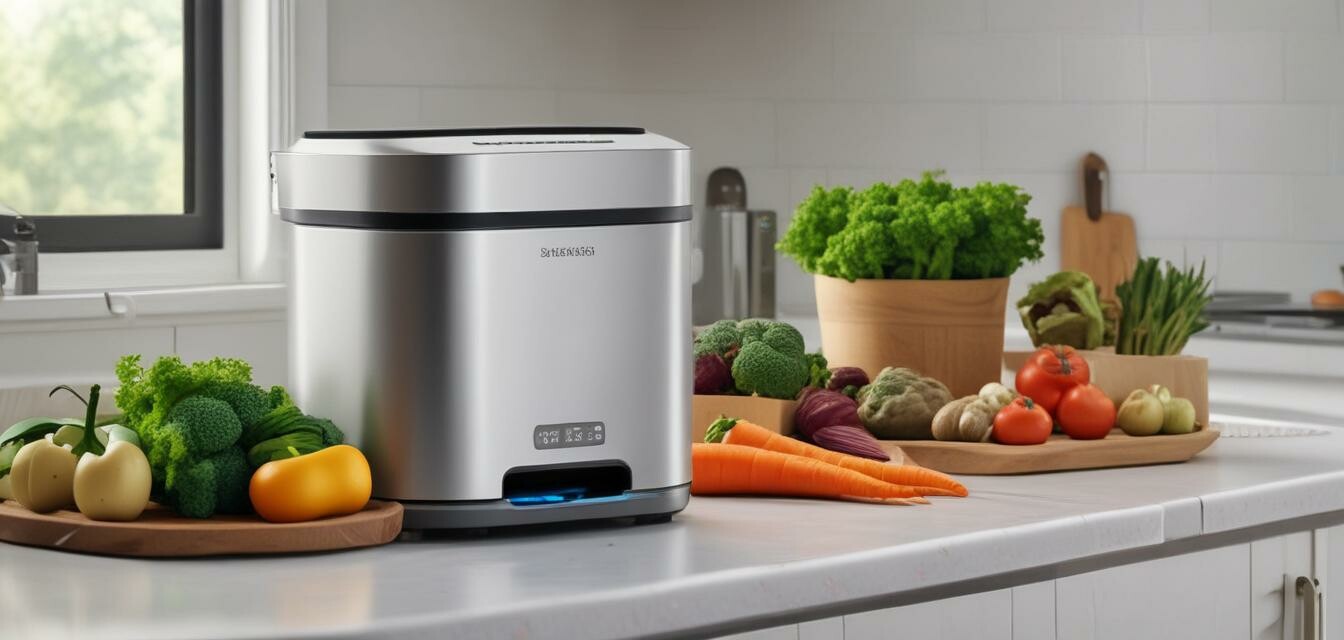
The Ultimate Guide to Smart Home Composters
Key Takeaways
- Smart home composters efficiently break down organic waste.
- They are user-friendly and require minimal effort to operate.
- Many models come with features like odor control and built-in sensors.
- Consider your kitchen space and volume of waste when selecting a composter.
- Explore options in our smart composters category for various features and prices.
If you’re looking to minimize kitchen waste and contribute to a more sustainable lifestyle, smart home composters are an excellent solution. These compact systems are designed to seamlessly integrate into any home, turning leftover kitchen scraps into rich compost without the effort traditionally associated with composting. In this guide, we'll explore the features, benefits, and what to consider when choosing the right smart home composter for your needs.
What are smart home composters?
Smart home composters are innovative devices that automate the composting process. They provide an efficient way to manage organic waste directly from your kitchen. Whether you have vegetable peels, coffee grounds, or leftover fruits, these composters allow for easy disposal while transforming waste into nutrient-rich compost.
Benefits of using smart home composters
- Convenience: Smart composters are easy to use, often requiring minimal set-up and maintenance.
- Speed: Many models can break down waste efficiently, producing compost in weeks rather than months.
- Odor control: Advanced technology helps manage odors, ensuring that your kitchen remains fresh.
- Space Saving: Compact designs fit easily into kitchen spaces, making them suitable for smaller homes.
- Eco-friendly: Reduces landfill waste and provides a natural fertilizer for your plants.
Features to look for
When choosing a smart home composter, consider the following features:
| Feature | Description |
|---|---|
| Capacity | Make sure the size matches your composting needs, especially if you generate a lot of waste. |
| Materials | Look for durable and easy-to-clean materials. |
| Odor Control | Check if the model includes built-in filters or ventilation systems. |
| Processing Time | Some models offer faster composting with different speeds for varying types of waste. |
| Sensors and Automation | Advanced models may feature sensors that automatically adjust conditions for optimum composting. |
How to choose the right smart home composter
Selecting the best smart home composter for your lifestyle can make a difference in your composting experience. Here are some tips:
Tips for beginners
- Assess your kitchen space: Choose a composter that fits comfortably in your kitchen without occupying too much space.
- Estimate your waste volume: Take into account how much organic waste your household generates.
- Read reviews: Consider customer feedback and performance reports to make an informed choice.
- Consider your gardening goals: Identify what you want to use your compost for, whether it’s for houseplants, a garden, or landscaping.
- Explore our options: Check out the smart composters category for a variety of models that fit your needs.
Common questions about smart home composters
1. How long does it take to compost?
Processing time can range from a few weeks to a few months, depending on the model and types of waste added.
2. Do they smell?
While some odors can occur, many smart composters feature odor control systems to minimize any unpleasant smells.
3. What can I compost in a smart home composter?
You can typically compost fruit and vegetable scraps, coffee grounds, eggshells, and some paper products. Always check the manufacturer's guidelines for specifics.
Conclusion
Smart home composters present an efficient and convenient way to recycle kitchen waste while contributing to sustainable practices. With numerous options available, it's important to assess your needs, kitchen space, and compost volume to find the perfect composter for your home. For more insights and detailed comparisons, explore our other categories like compost tumblers and worm composting bins.
Pros
- User-friendly and automated processes.
- Compact design suitable for kitchen spaces.
- Reduced processing time compared to traditional composting.
- Advanced features for odor control and monitoring.
Cons
- Higher initial cost compared to traditional composters.
- Some models may require electricity.
- Limited input material types based on the design.